Passage Analysis of Identity Crisis in English Assignments
VerifiedAdded on 2022/09/09
|5
|908
|26
Essay
AI Summary
This essay analyzes Fiona Teng's article "Call Me by My Names," focusing on the identity crisis experienced by a Chinese individual in a Western country. The student's essay examines the author's narrative techniques, exploring themes of cultural adaptation, racism, and the impact of name changes on personal identity. The analysis delves into the author's experiences with adopting English names, the subtle forms of racism encountered, and the challenges faced in professional and social settings. The essay also references another article by Zheping Huang to highlight the shared experiences of immigrants. The conclusion emphasizes the importance of cultural understanding and acceptance, advocating for efforts to eliminate subtle forms of discrimination and promote respect for diverse cultural backgrounds. The essay adheres to MLA 8 style, providing a works cited page and in-text citations to support the analysis.
1 out of 5
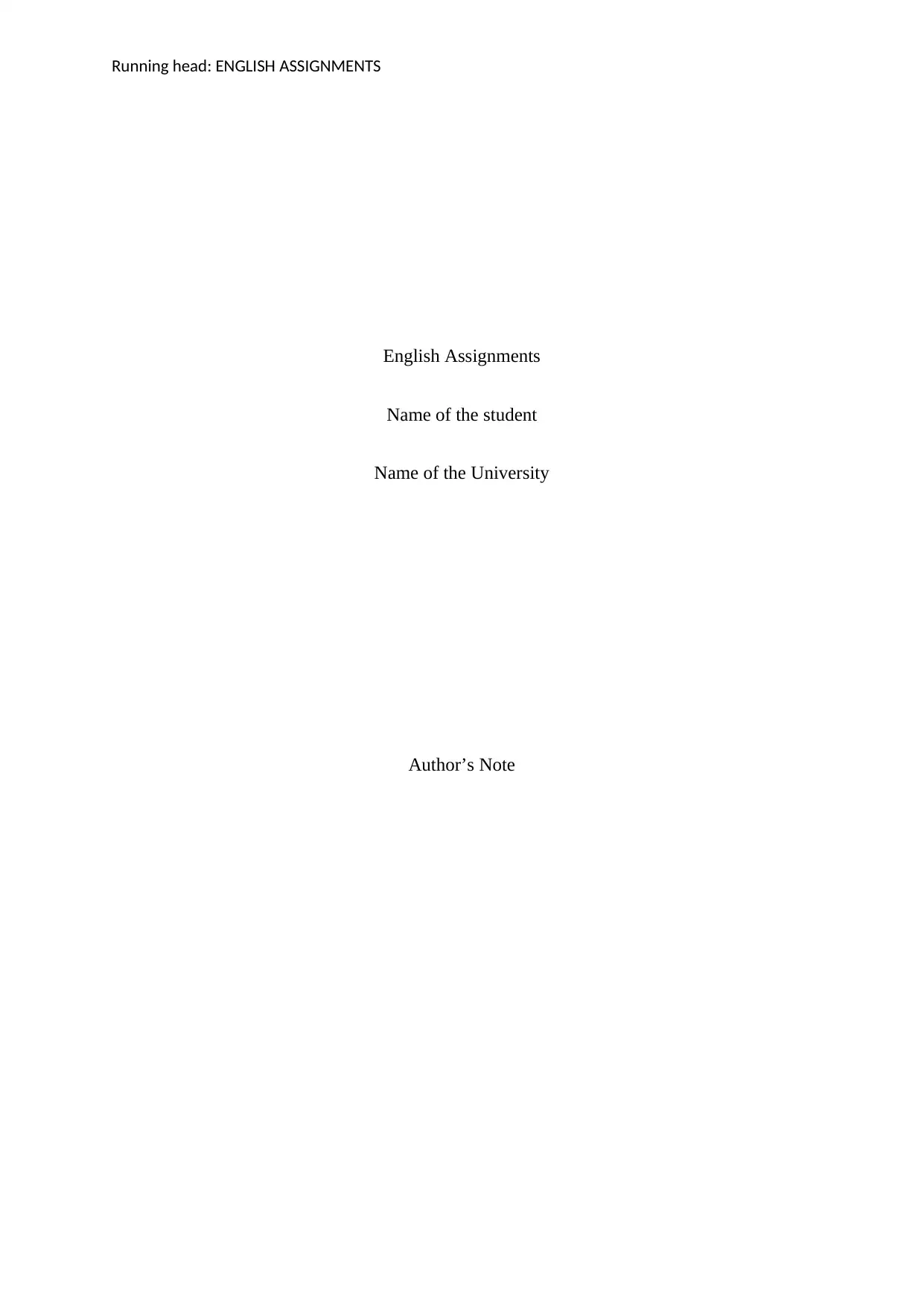
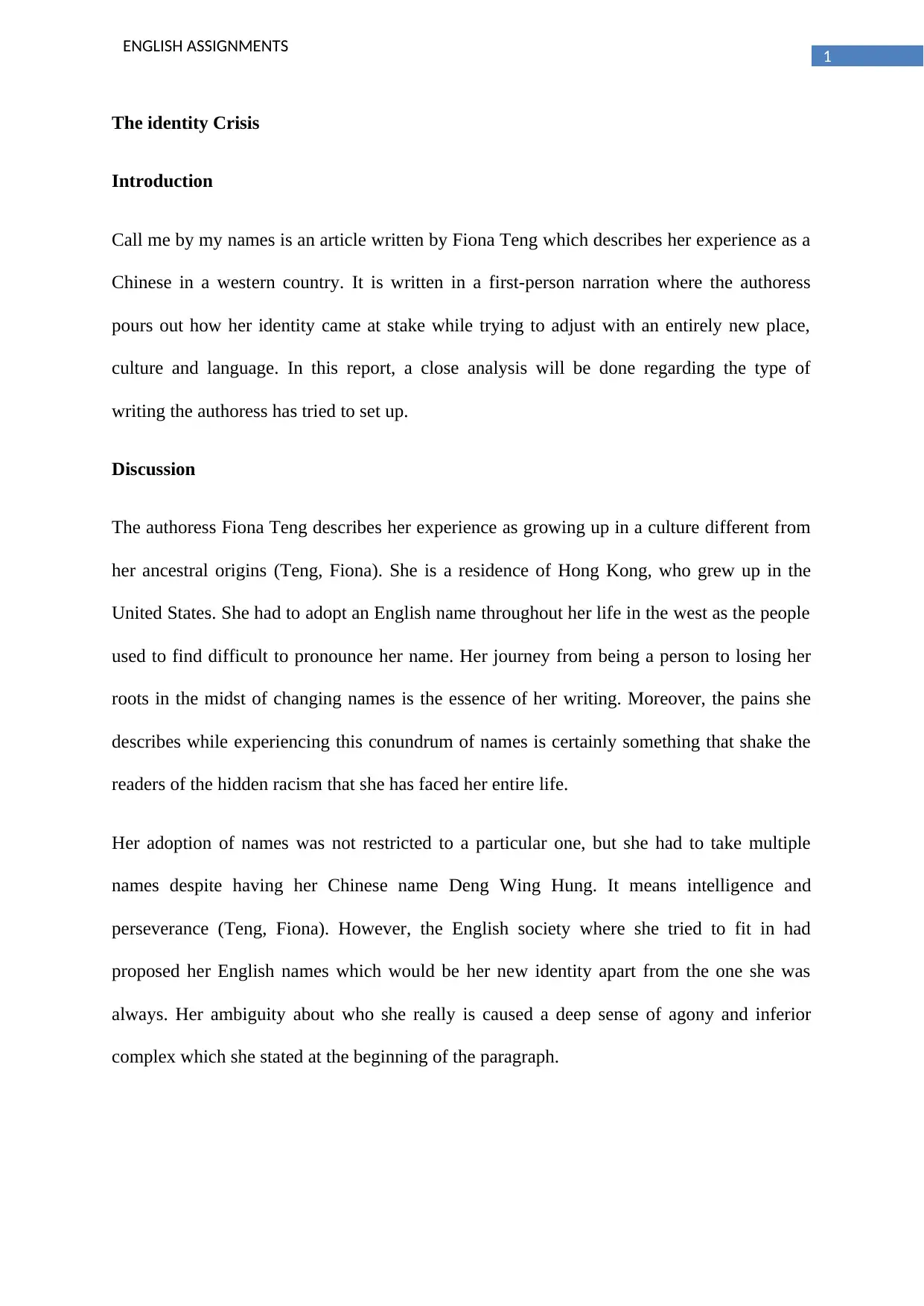
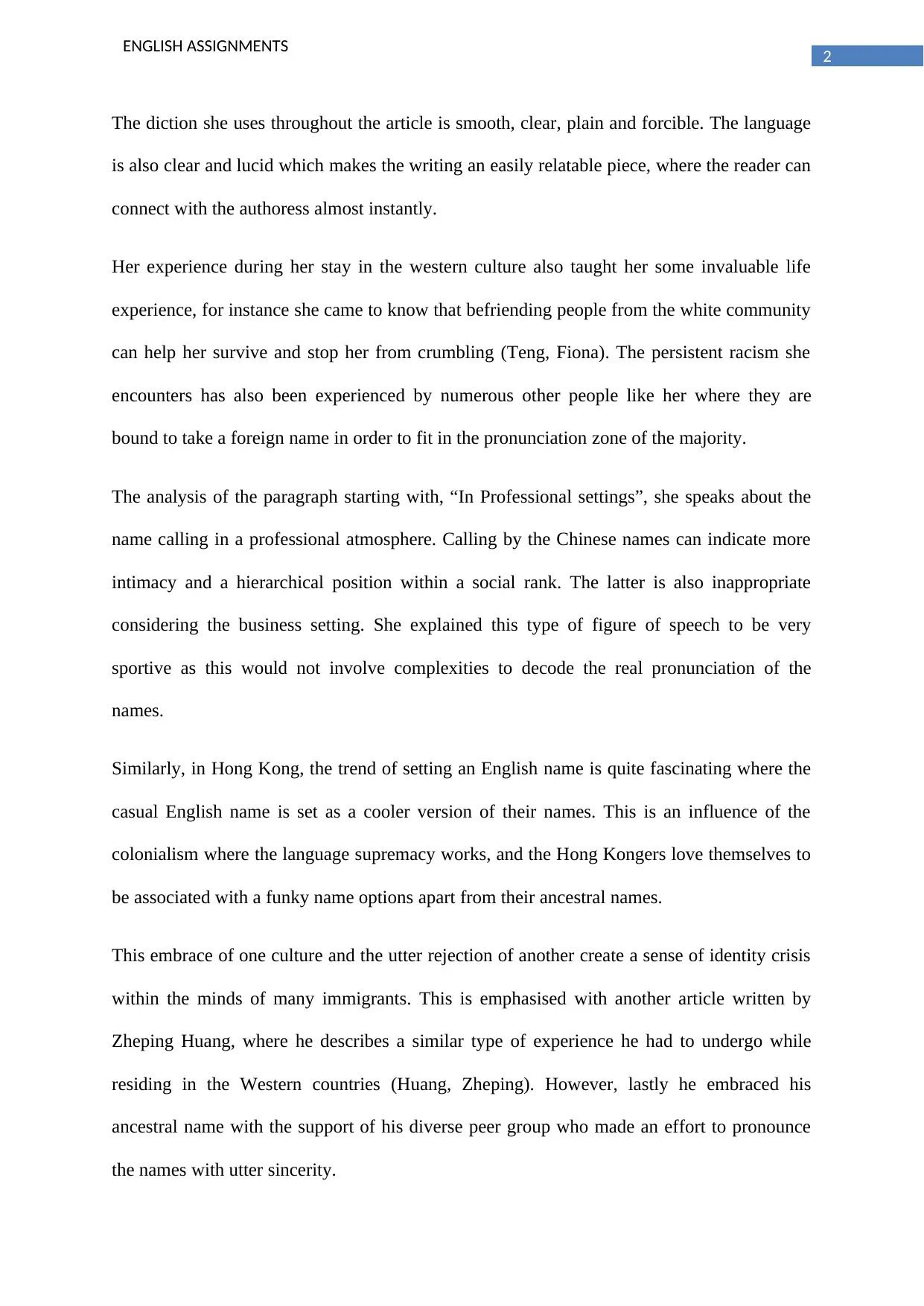

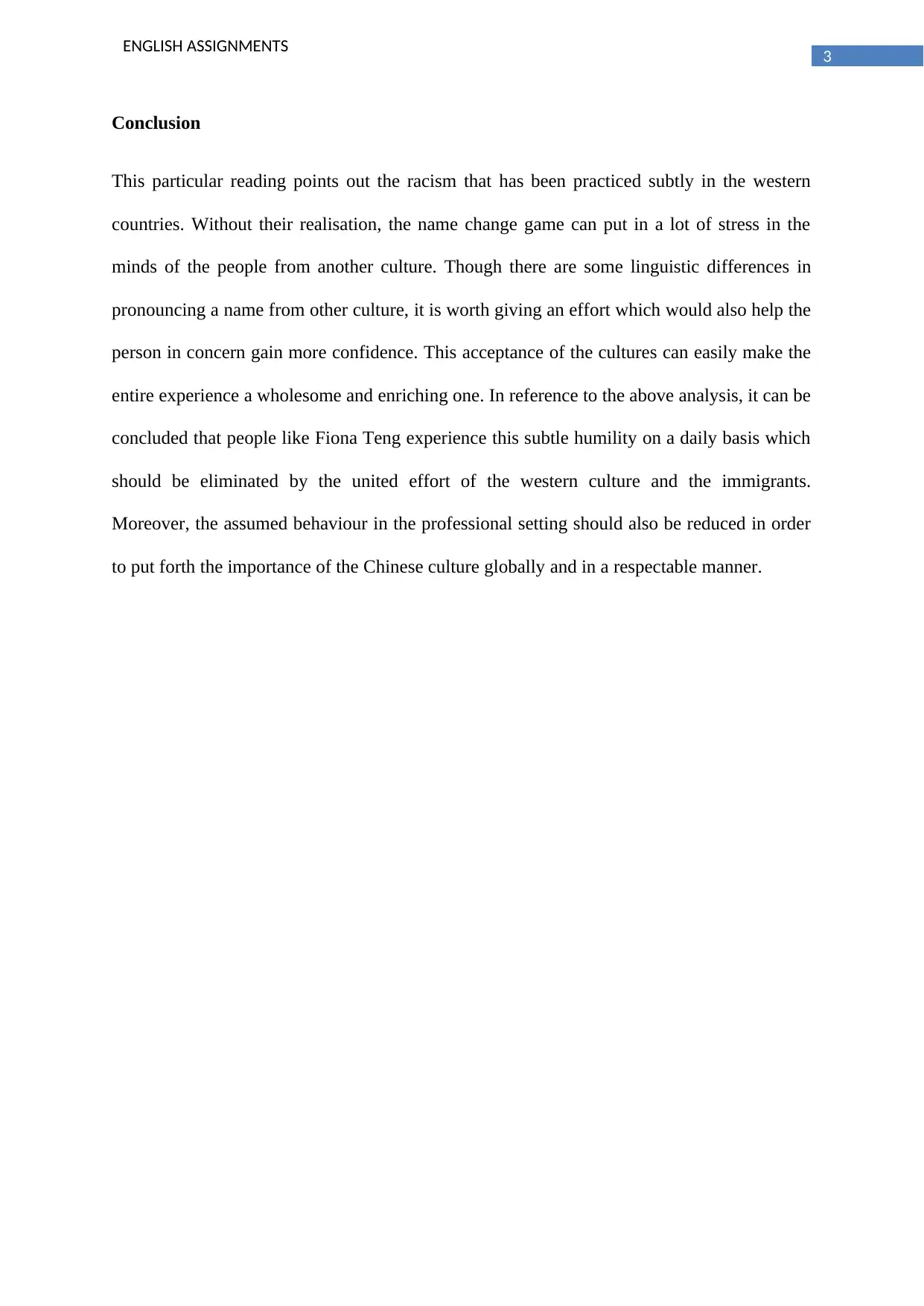
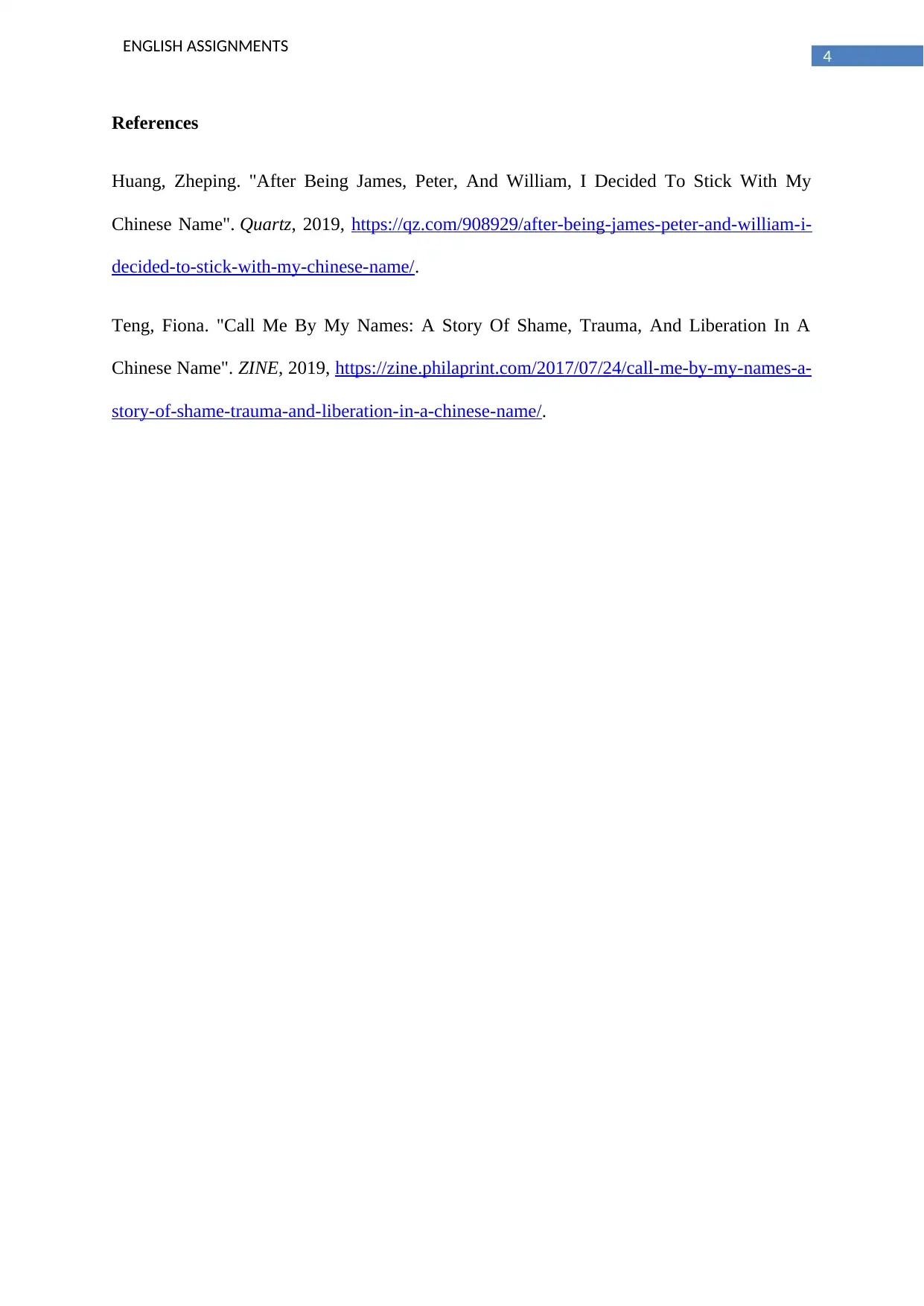

![[object Object]](/_next/static/media/star-bottom.7253800d.svg)